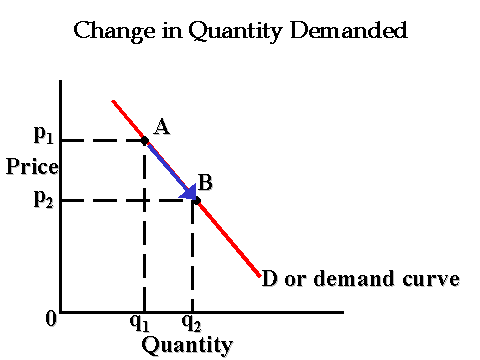THE ECONOMICS
Economics is
the social science that studies the behavior of individuals’ households, and organizations (called economic actors, players, or
agents), when they manage or use scarce resources, which have alternative
uses, to achieve desired ends. Agents are assumed to act rationally, have
multiple desirable ends in sight, limited resources to obtain these ends, a set
of stable preferences, a definite overall guiding objective, and the capability
of making a choice. There exists an economic problem, subject to study by
economic science, when a decision (choice) has to be made by one or more
resource-controlling players to attain the best possible outcome under bounded
rational conditions. In other words, resource-controlling agents must maximize
value subject to the constraints imposed by the information the agents have,
their cognitive limitations, and the finite amount of time they have to make
and execute a decision. Economic science centers on the activities of the
economic agents that comprise society. They
are the focus of economic analysis.
The traditional concern
of economics is to gain an understanding of the processes that govern the
production, distribution and consumption of goods and services in an exchange economy.
An agent may have purposes or ends, such as reducing or protecting individuals
from crime, on which he or she wants to spend resources. Economics may study
how the agent determines the amount of resources to allocate for this purpose,
aside from the traditional concern of economics.
An approach to
understanding the processes of production, distribution, and consumption,
through the study of agent behavior under scarcity, may go as follows: The
continuous interplay (exchange or trade) had done by economic actors in all
markets sets the prices for all goods and services which, in turn, make the
rational managing of scarce resources possible. At the same time, the decisions
(choices) made by the same actors, while they are pursuing their own interest
(their overall guiding objective), determine the level of output (production),
consumption, savings, and investment, in an economy, as well as the
remuneration (distribution) paid to the owners of labor (in the form of wages),
capital (in the form of profits) and land (in the form of rent). Each period, as if they were in a
giant feedback system, economic players influence the pricing processes and the
economy, and are in turn influenced by them until a steady state (equilibrium)
of all variables involved is reached or until an external shock throws the
system toward a new equilibrium point. Because of the autonomous actions of
rational interacting agents, the economy is a complex adaptive system.
The term economics comes from the Ancient Greek οἰκονομία (oikonomia,
"management of a household, administration") from οἶκος (oikos,
"house") andνόμος (nomos,
"custom" or "law"), hence "rules of the house(hold for
good management)".Political economy' was the earlier name for the subject,
but economists in the late 19th century suggested "economics" as a
shorter term for "economic science" to establish itself as a separate
discipline outside of political science and other social sciences.
Economics focuses on
the behavior and interactions of economic
agents and how economies work. Consistent with this focus,
primary textbooks often distinguish between microeconomics and macroeconomics. Microeconomics examines the behavior of basic
elements in the economy, including individual agents and markets, their
interactions, and the outcomes of interactions. Individual agents may include,
for example, households, firms, buyers, and sellers. Macroeconomics analyzes the entire economy (meaning
aggregated production, consumption, savings, and investment) and issues
affecting it, including unemployment of resources (labor, capital, and land),
inflation, economic growth, and the public policies that address these issues
(monetary, fiscal, and other policies).
Other broad
distinctions within economics include those between positive economics, describing
"what is," and normative
economics, advocating "what ought to be"; between economic theory and applied economics; between rational and behavioral economics; and between mainstream economics (more "orthodox" and dealing
with the "rationality-individualism-equilibrium nexus") and heterodox economics (more "radical" and dealing
with the "institutions-history-social structure nexus").
Besides the traditional
concern in production, distribution, and consumption in an economy, economic
analysis may be applied throughout society, as in business, finance, health care, and government. Economic
analyses may also be applied to such
diverse subjects as crime, education, the family, law, politics, religion, social institutions, war, and science; by considering the economic aspects of
these subjects. Education, for example, requires time, effort, and expenses,
plus the foregone income and experience, yet these losses can be weighed
against future benefits education may bring to the agent or the economy. At the
turn of the 21st century, the expanding domain of economics in the social
sciences has been described as economic
imperialism.
THANKS FOR READING THIS ARTICLE
SOURCE:WIKIPEDIA


